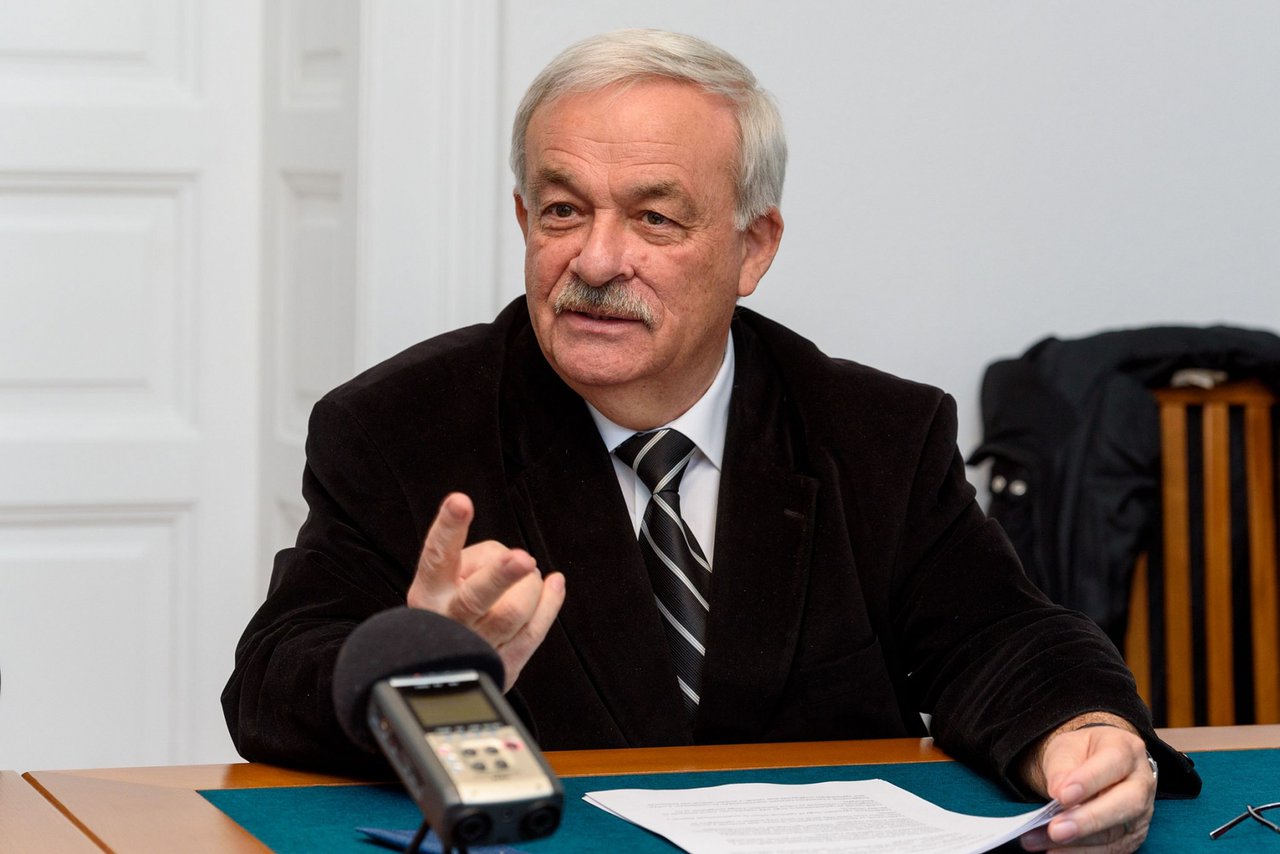The Communion of Protestant Churches in Europe (CPCE) confirmed its commitment for the unrestricted rights of the continent's national and linguistic minorities in a Communiqué expressing its concerns regarding the refusal of European citizens’ initiative “Minority SafePack” by the European Committee. "In the spirit of unity in reconciled diversity, the CPCE wishes to support the particular traditions of its member churches, including linguistic diversity," says the statement.
Béla Kató, Bishop of the Reformed Church in Transylvania, in his contribution emphasized the enriching contribution of minorities to the life of the whole society and welcomed the initiative of hosting a consultation on multilingualism in worship. The head of the Hungarian reformed community in Romania argued that in an autentic and diverse democracy guaranteeing human dignity and rights of the minority communities is in the interest of the majority society. He also urged a European framework for a better protection of minorities in the EU, in compliance with basic European values, which would be binding for the member states.

Communiqué of the Communion of Protestant Church in Europe
In many countries, Protestants account for a very low proportion of society as a whole, and by now even traditionally major churches are heading towards becoming minorities. Hence Protestantism is being called a minority phenomenon. This is even more literally the case for some Protestant churches in particular, who have close links with national or linguistic minorities within their countries.
Some had great hopes for the success of the European citizens’ initiative “Minority SafePack” that demanded better legal protection for linguistic and national minorities. However, in January 2021, the European Commission rejected its application, deeming the existing regulations to be sufficient as long as implemented properly at national level. This decision was all the more surprising to those concerned, as a clear majority had supported Minority SafePack in the European Parliament only in December 2020.
The CPCE addressed the challenges simmering between church and nation in its paper “Church – People – State – Nation” (Leuenberg Document no. 7), which was reedited in 2019, observing: “The often painful lessons from their own history should cause the churches today to be all the more watchful about such fatally nationalist views and all the more firmly to support minorities which are victims of discrimination”.
The most recent General Assembly of the CPCE, held in Basle in 2018, issued a message of peace to commemorate the centenary of the end of the First World War. Under the heading “Together for Europe”, it pointed out that minority rights, some of which arose only in the aftermath of the war, are still not observed universally to this day. “Diaspora Protestant Churches have often also taken on the task of nurturing and maintaining their members’ cultural as well as confessional identity. […] In pondering a relational understanding of the “theology of diaspora”, the CPCE promotes churches and congregations perceiving themselves as a bridging place ‘linking separated elements without eliminating their difference.’”
Bishop Béla Kató of the Reformed Churches in Transylvania believes that “in an authentic democracy, bilingualism or multilingualism, cultural diversity, or variances in the way God is worshiped are a significant plus for society. Minority status can also confer acceptable consciousness, cultural enrichment and satisfied citizenship, which purposefully moulds the community.”
In the spirit of “unity in reconciled diversity”, the CPCE wishes to support the particular traditions of its member churches, including linguistic diversity. We are currently planning a consultation on multilingualism in worship that is likely to be held in multicultural Transylvania.
In the European Union there are about 50 million people who belong to a national minority or a minority language community. They make a strong contribution to the linguistic and cultural diversity of Europe. Together with other Europeans they want to define the future of Europe; a future in which not only large languages or dominant cultures, but also minorities are taken into account. Therefore they want protection and support for the preservation of their identity. This is what the Minority SafePack Initiative calls for.

Bishop Béla Kató
Together for Europe - reflection shared by Bishop Béla Kató
In addition to proclaiming the Word of God, one of the tasks of the autochthonous minority churches nowadays is of conveying to the children their forefathers’ national self-awareness and reinforcing the particular sense of identity of the adults in order to preserve their God given human dignity. In an authentic democracy, bilingualism or multilingualism, cultural diversity, or variances in the way God is worshiped are a significant plus for society. Minority status can also confer acceptable consciousness, cultural enrichment and satisfied citizenship, which purposefully moulds the community. The more freedom of self-expression the majority gives to the minority, the richer and colorful it becomes. However, where the minority is seen as a risk to national security by the majority and treated as such, the drama of minority existence is a dichotomy till the burial ground. For the implementation of our dream to journey together on our common European path which is equally accessible for all, it would be desirable to elaborate a comprehensive regulation for the protection of minority rights based on the Charter of Fundamental Rights of the European Union, the Treaty of Lisbon and the Copenhagen criteria, which would be binding for all Member States.
Each Signature Counts
Béla Kató, Bishop of the Reformed Church District in Transylvania, believes that the Minority SafePack European Citizen’s Initiative is making a change in the case of legal uncertainty for the Hungarian minorities in Transylvania.